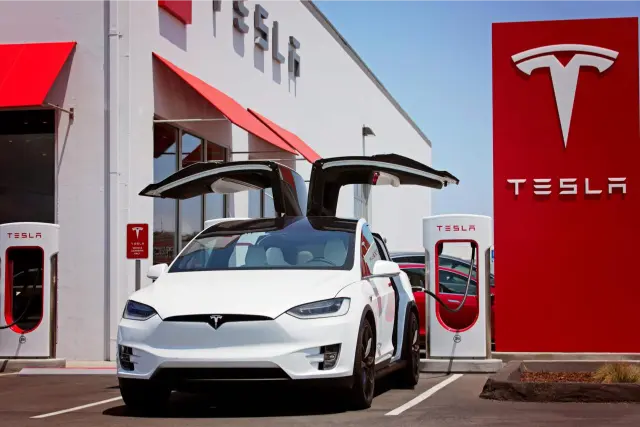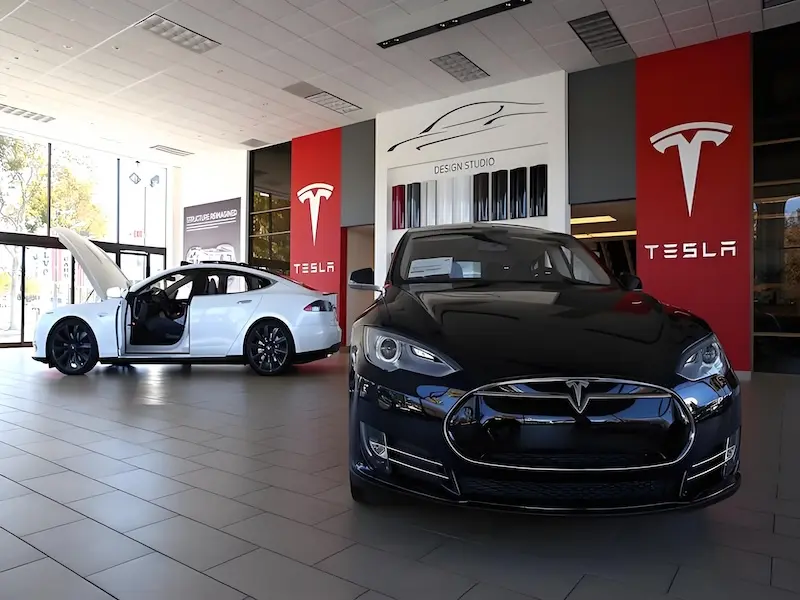- Considering Tesla’s asking price, its electric fuel economy, and maintenance are reasons why people would like to buy a Tesla.
- There may be state and local incentives available to Tesla’s EV buyers.
- Because Tesla produces more technologically advanced luxury cars with unique components, auto insurance rates for its models tend to be much higher than for regular cars.
- While Tesla’s most expensive repair when replacing a battery, Tesla’s batteries typically last 500,000 miles, not just 150,000 miles.
Tesla has become one of the hottest electric vehicle brands in recent years, with its sleek design, cutting-edge technology, and eco-friendly benefits attracting a lot of people to buy, however are Teslas worth it?
This blog will look at several aspects of Tesla pricing, models, electric fuel used, tax, insurance, maintenance, and best resale value to determine whether or not a Tesla is worth buying.
Tesla’s models and how much they cost
Tesla has four different models, the Model 3, Model Y, Model S, and Model X each with additional costs and features.
1. Tesla Model 3
The Tesla Model 3 is a compact electric sedan designed for mass-market appeal. It combines minimalist design with cutting-edge technology and excellent performance.
The Model 3 features a spacious interior with seating for five adults, a 15-inch touchscreen display, and Autopilot advanced safety features. Starting Price: $46,990
2. Tesla Model Y
The Tesla Model Y is a compact electric SUV that combines the versatility of an SUV with the efficiency of an electric vehicle. It features a sleek exterior design, a spacious interior with seating for up to seven adults, and ample cargo space.
The Model Y comes equipped with a minimalist interior, a 15-inch touchscreen display, and Autopilot advanced safety features. Starting Price: $65,990
3. Tesla Model S
The Tesla Model S is a luxury electric sedan known for its sleek design, impressive performance, and advanced technology features. It offers spacious seating for up to five adults and two children with optional rear-facing seats.
The Model S comes equipped with a large touchscreen infotainment system, Autopilot semi-autonomous driving capabilities, and a panoramic glass roof. Starting Price: $104,990
4. Tesla Model X
The Tesla Model X is a premium electric SUV renowned for its distinctive falcon-wing rear doors, spacious interior, and cutting-edge features. It offers seating for up to seven adults across three rows, with ample cargo space and a panoramic windshield.
The Model X comes equipped with a large touchscreen display, Autopilot functionality, and optional Ludicrous Mode for exhilarating acceleration. Starting Price: $120,990
Buying a Tesla car may require around $10,000 down payment. If you have good credit, with monthly payments of $1,365, a Tesla Model S can be financed at 2.49% APR for about six years.
Also read: Tesla to adopt new assembly technology, reducing production costs
Tesla’s electric fuel usage
There’s no denying that Teslas come with a premium price tag compared to conventional petrol or diesel vehicles.
However, it’s essential to consider the total cost of ownership over the vehicle’s lifespan rather than just the upfront purchase cost. Teslas may be more expensive initially, but factors such as lower fuel and maintenance expenses can offset this cost over time.
One of the primary advantages of owning a Tesla is the use of electric fuel instead of gasoline or diesel.
Electric vehicles offer significant savings on fuel costs, especially when charging at home using cheaper off-peak electricity rates. Additionally, EVs produce zero tailpipe emissions, contributing to cleaner air and reduced environmental impact.
While the initial investment in a Tesla may be higher, the long-term savings on fuel expenses can make it a financially prudent choice.
According to Tesla’s latest data, the average annual fuel cost for a car is about $614.51.
However, there is one caveat. As a Tesla owner, you are also responsible for purchasing a home charging station, which is $1,200.
The first year will be the most expensive and the annual fuel cost will be $1,814.51 but after that, it’s $614.51 from the second year onwards. Even so, it’s still cheaper than two years of petrol for the average American driver.

Tesla’s tax implications in the US
One of the significant incentives for purchasing an electric vehicle (EV) like a Tesla in the United States has been the federal tax credit.
However, it’s crucial to note that federal tax credits for Tesla vehicles have phased out due to the automaker reaching the sales threshold set by the government. As of the last update in January 2022, Tesla customers no longer qualify for federal tax credits.
While federal tax credits for Tesla vehicles have expired, there may still be state and local incentives available to EV buyers.
These incentives vary by location but can include rebates, tax credits, reduced registration fees, and access to HOV lanes. Prospective Tesla buyers need to research the incentives available in their state or municipality to determine the potential savings.
Tesla’s insurance costs
Insurance premiums for Teslas may vary depending on factors such as model, age, driving history, and location.
While some insurers may offer discounts for electric vehicles due to their lower risk of accidents and reduced maintenance costs, others may view Teslas as high-value assets requiring comprehensive coverage.
According to the Insurance Navy, the average annual cost of auto insurance is $2,200. However, your exact rate depends entirely on the driver, their car, and where they live.
The average insurance cost for a Model S Tesla is about $3,673 per year, according to some driver reports.
Also read: Musk: Tesla Roadster will accelerate 0 to 100 km/h in less than 1s
Tesla’s maintenance expenses
One of the lesser-known benefits of owning a Tesla is its lower maintenance requirements compared to traditional internal combustion engine vehicles. Electric cars have fewer moving parts, which translates to reduced wear and tear and fewer trips to the mechanic.
The most expensive repair job for a Tesla is a battery replacement, which can cost anywhere from $12,000 to $16,000. The good news is that every Tesla’s battery comes with an 8-year or 150,000-mile warranty. However, Tesla’s batteries typically last 500,000 miles, not just 150,000 miles.
Additionally, Tesla’s over-the-air software updates continuously improve performance and add new features, eliminating the need for manual software upgrades. While servicing and repairs for Teslas may still incur expenses, they are generally lower than those for petrol or diesel cars.
Tesla’s best resale value
Tesla’s ability to maintain its resale value is one of its most astounding qualities.
Tesla cars are very popular as used cars due to the quality of their materials and brand reputation, and over time your investment will be better protected than buying an electric car from another manufacturer. Even Tesla offers a “Resale Value Guarantee” document that outlines the value of your car over the next five years.
While resale values may vary depending on factors such as model, age, mileage, and market conditions, Tesla owners can generally expect their vehicles to retain a higher percentage of their original purchase price compared to traditional gasoline-powered cars.
So, are Teslas worth it? After examining Tesla pricing, models, electric fuel usage, tax implications, insurance costs, maintenance expenses, and best resale value the answer is a resounding yes for many consumers.
While the initial investment in a Tesla may be higher than that of a conventional vehicle, the long-term benefits in terms of fuel savings, tax incentives, and lower maintenance costs make it a compelling choice for environmentally conscious individuals and savvy car buyers.
However, it’s essential to conduct thorough research, consider your individual needs and budget, and weigh the pros and cons before making a decision.

